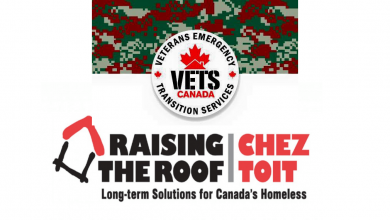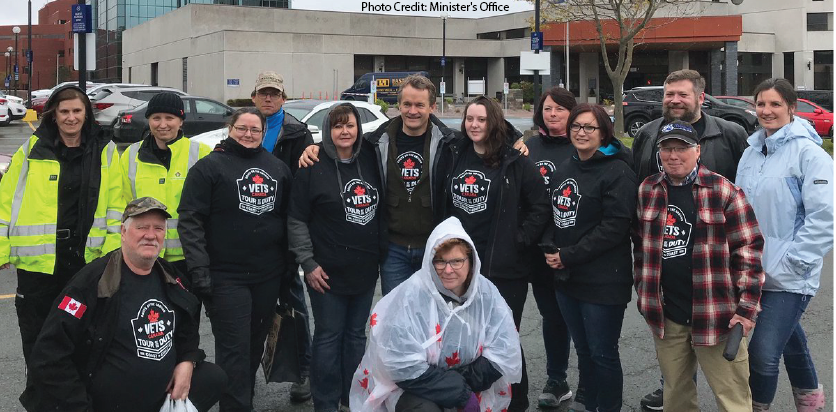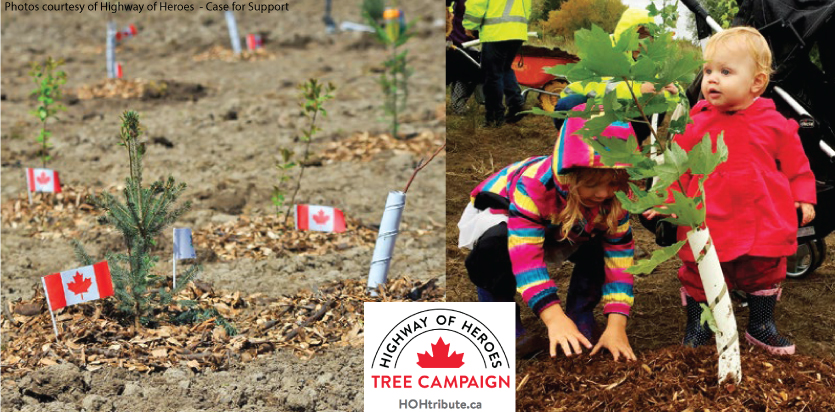Community Builders
VETS Canada expanding its outreach to homeless Veterans
In just three years Jim Lowther’s mission to get homeless Canadian military veterans off the streets has gained momentum and support across the country. Founded by Lowther in 2010, Veterans Emergency Transition Services (VETS) Canada’s goal is to eradicate veterans’ homelessness.
Along with the assistance of other concerned veterans, Lowther, a retired Canadian soldier, formed VETS Canada after discovering some of his comrades were living on the streets in Halifax.
“When I started VETS in 2010, there were a couple of things I never would have imagined,” shares Lowther, adding, “One being the magnitude of the problem of homeless and at risk veterans, another being the progress and growth that VETS Canada has achieved.”
The organization has helped over 150 veterans from the age of 22 to 88. Veterans from the Second World War to Korea and every conflict in between and thereafter, including Afghanistan, now have secure safe and affordable housing and many others have had help navigating the process of applying for benefits from Veterans Affairs Canada, Service Canada and other agencies.
“Now that I have seen the strides we can make in this short time, it has become my personal goal to eradicate homelessness among veterans within the next five years,” shares Lowther.
Since its inception the organization has experienced tremendous growth by attracting dedicated volunteers from across the country, securing office space in Halifax and obtaining “borrowed” space in municipal centres and Legions to house their four provincial chapters.
Currently the non-profit organization is operated by a national board of directors, which is based out of Halifax. Lowther is at the helm as president, Marie LeLoup as vice-president and Barry Yhard as the executive director. From their headquarters they manage provincial chapters in Nova Scotia, New Brunswick/PEI, Ontario and Manitoba. The group is currently preparing to mobilize their “Boots on the Ground” teams with support structures in British Columbia and Alberta.
“We like to say the office space means VETS Canada is no longer homeless,” shares Yhard.
The organization has typically found a larger concentration of homeless vets in areas that are close to Canadian Forces establishments. The homeless veterans have shared a variety of reasons as to how they ended up on the streets, however, the most common scenario is that the member didn’t transition from military life to civilian life successfully and by the time they end up on the street they have exhausted all their social support networks.
“Those that do end up on the street will tell you they have run out of options, have been couch surfing from friend to friend, from family member to family member,” explains Yhard, adding, “Sometimes they have addiction related issues that are interfering with getting back on their feet; sometimes they are homeless because of poorly made life decisions or financial difficulties. Often, there are a combination of operational injuries, (physical and or mental) adding to the list of contributing factors.”
He notes their experience dealing with their clients has also shown that one of the most difficult walls to climb once they end up on the street is the ability to get back into mainstream society and out of the homeless cycle.
Yhard notes it has been VETS Canada’s experience that there is a gap between the programs and the organizations available to help homeless veterans and their ability to get into these programs. “This gap, or deficiency, is what VETS Canada works to bridge,” he explains. “Bureaucracy and “the system” can be a formidable obstacle for those who have fallen through the cracks, they have often had their values and beliefs in what they fought for while they were in “the system”, shaken to the core.”
The organization refers their clients to programs provided by the Canadian Armed Forces, Veterans Affairs Canada, the Royal Canadian Legion, and other organizations that have assistance programs in some form or another.
Most veterans they assist respond well to the available programs, but, having experienced bureaucracy before, they often shut down at the first hint of it, especially when they have been on the street for a while. “VETS Canada provides the calming voice, the “comrade at arms” presence to assist the vet with paperwork, with facing and conquering the beast known as “red tape” and helps the vet make sense out of an often confusing process,” Yhard shares.
The organization had the opportunity to add General J. Sharpe to their team as their national patron. “He graciously accepted the position and he will represent VETS Canada in Ottawa and at executive levels of government and corporate relations,” explains Yhard.
The group has also formed a formal partnership with the Dominion Command, Royal Canadian Legion and they have strengthened their efforts to eliminate homelessness among veterans through their membership on the Veterans Affairs NGO Standing Committee on Veterans. Also, they are currently developing a Memo of Understanding with the Canadian Forces Morale and Welfare Directorate.
Although the organization is run solely on the goodwill and energy of volunteers the organization also needs money to help veterans who have fallen through the bureaucratic cracks.
As with most non-profit agencies VETS Canada faces the challenge of raising funds to ensure they can continue to meet the needs of homeless veterans; hence, they are always in fundraising mode. Lowther explains, “VETS Canada is currently 100% reliant on donations from caring Canadian citizens and local community businesses, people and companies, who, due to their contributions and donations, are helping fight homelessness amongst Canada’s veterans every day. We are grateful for their support.”
They have been careful to ensure they have the resources in place before expanding, Yhard notes. Their clients’ need for help also impacts their expansion since 90 percent of their funds go to their clients first, which leaves only 10 percent for their expansion.” A daunting task in today’s economic reality.”
“Funding is “the” critical factor and a potential single point of failure. To set up shop and not have the funds to support emergency operations would be disastrous, both to the hope and welfare of our veterans in need, and to the continued functionality of the organization,” explains Lowther.
VETS Canada is always looking for more volunteers. However, to work on the frontlines, working on the streets or hold an executive position members must be either a serving or retired military or RCMP member.
To find out more about how you can support VETS Canada visit their website: www.vetscanada.org or follow them on Facebook or Twitter.
By Jill Kruse








